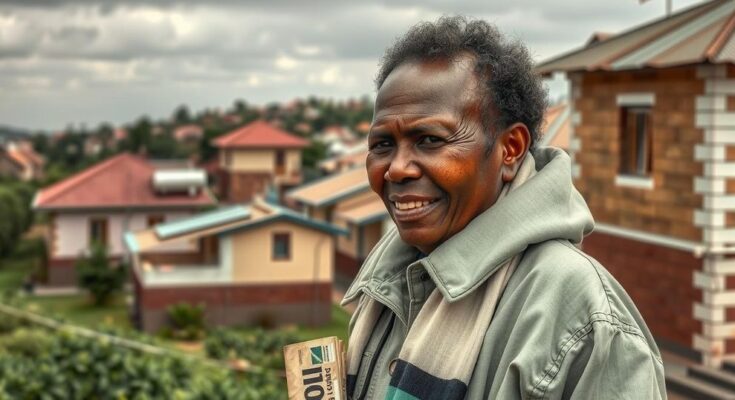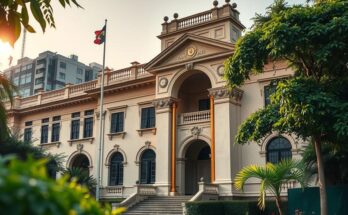Ethiopia is undergoing transformative economic reforms aimed at enhancing its capital, Addis Ababa, while floating the birr and opening the economy to foreign competition. However, the nation faces social strife, rising inflation, and persistent insecurity, making the path to sustainable economic growth uncertain. Despite aspirations for modernization, many citizens remain displaced and skeptical about the benefits of these changes, highlighting the disconnect between infrastructural advancements and genuine economic opportunities.
Ethiopia is currently undergoing significant economic reforms under Prime Minister Abiy Ahmed, who aims to revitalize the capital, Addis Ababa, through aesthetic improvements and infrastructural investments. The country’s economic landscape is shifting with the recent decision to float the birr, transitioning away from decades of state control. As Ethiopia grapples with historical social crises and ethnic conflicts, these reforms appear both progressive and precarious, raising concerns about job creation and economic stability amidst rising inflation and regional insecurity.
Despite a facelift for Addis Ababa, with enhanced bike lanes and shopping areas, the underlying social issues remain as communities are displaced in the name of development. The Ethiopian government is now allowing foreign competition, seeking to deregulate its economy and create capital markets. Yet, traditional state-led approaches have left many farmers and urban migrants without sustainable livelihoods, showcasing a disconnection between infrastructural progress and genuine economic opportunity.
The central bank’s recent financial measures represent a significant policy pivot towards market-driven principles, challenging a long-standing regime of currency control that has resulted in economic inefficiencies. As the birr’s value drops, there is optimism for exporters, particularly within the coffee sector, but manufacturers dependent on imports are facing challenges that could hinder broader economic recovery. In addition, the struggle to attract foreign investment amidst ongoing regional violence and previous investor caution underscores the complex balancing act faced by Ethiopia’s leadership.
The impetus for Ethiopia’s recent economic reforms stems from the need to address the social and economic strains placed on the country due to a stagnant state-controlled economy and ongoing ethnic conflicts. The transition to market regulations initiated by Prime Minister Abiy Ahmed represents a critical moment in the country’s attempts to modernize its economy and attract foreign investment. However, the historical reliance on state-led growth and the social repercussions of displacement cast doubt on the sustainability of these reforms. Integration into global markets is vital for economic survival, yet internal instability and inflationary pressures pose considerable risks to the success of such policies.
In conclusion, Ethiopia’s economic reforms initiated by Prime Minister Abiy Ahmed underline a significant shift from state control towards a market-oriented economy. While the potential for growth and foreign investment exists, the prevailing issues of displacement, inflation, and regional unrest present formidable challenges. Ultimately, the success of these reforms will depend not only on implementing new policies but also on addressing the underlying social crises that threaten economic stability.
Original Source: foreignpolicy.com




